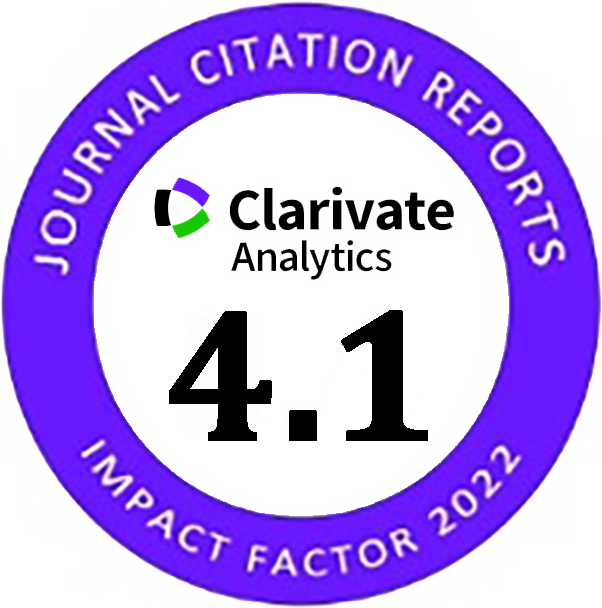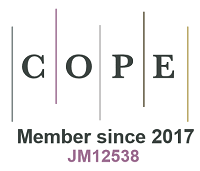Evaluation of Legislation Adequacy in Managing Time and Quality Performance in Iraqi Construction Projects- a Bayesian Decision Tree Approach
Abstract
Delay and quality defects are significant problems in Iraqi construction projects. During the period from 2003-2014, legislation has been changed to enhance the performance of construction project. This change is done by modifying some clauses of legislation and adding or deleting the others. The aim of this study is to evaluate the adequacy of these changes by using questionnaire and Bayesian decision tree model. 30 projects were taken for the period from 2003-2014. Performance of construction project was assessed on one hand by conducting a questionnaire which depend on the impact of legislation clauses on the time and quality performance, while on the other hand Bayesian decision tree model was developed in which qualitative estimate of time and quality performance by using KNIME program. The results of questionnaire estimate the delay from very low to very high and quality from very low to high in Iraqi construction industry. The results of Bayesian decision tree model reveal that the high percentage of construction projects were implemented with very high delay and high level of quality. The model gives good accuracy in prediction time and quality performance about 86.7%. These results show the enhancement in the quality performance is greater than the time performance under the legislative change. The model can assist the Iraqi legislator in evaluation the impact of legislation on time and quality performance of construction project.
Keywords
References
Lewis, D. D. (1998, April). Naive (Bayes) at forty: The independence assumption in information retrieval. In European conference on machine learning (pp. 4-15). Springer, Berlin, Heidelberg. https://doi.org/10.1007/BFb0026666.
Leung, K. M. (2007). Naive Bayesian classifier. Polytechnic University Department of Computer Science/Finance and Risk Engineering.
Han, J., Pei, J., & Kamber, M. (2011). Data mining: concepts and techniques. Elsevier.
Friedman, J. H. (2001). Greedy function approximation: a gradient boosting machine. Annals of statistics, 1189-1232.
Richardson, M., Dominowska, E., & Ragno, R. (2007, May). Predicting clicks: estimating the click-through rate for new ads. In Proceedings of the 16th international conference on World Wide Web (pp. 521-530). ACM.
Li, P. (2012). Robust logit boost and adaptive base class (abc) logitboost. arXiv preprint arXiv:1203.3491.
Tiwari, A., & Sekhar, A. K. (2007). Workflow based framework for life science informatics. Computational biology and chemistry, 31(5), 305-319. doi: 10.1016/j.compbiolchem.2007.08.009.
Helmer, G., Wong, J. S., Honavar, V., & Miller, L. (2002). Automated discovery of concise predictive rules for intrusion detection. Journal of Systems and Software, 60(3), 165-175. doi: 10.1016/S0164-1212(01)00088-7.
Quinlan, J. R. (1987). Simplifying decision trees. International journal of man-machine studies, 27(3), 221-234. doi:10.1016/S0020-7373(87)80053-6.
Pontius Jr, R. G., & Millones, M. (2011). Death to Kappa: birth of quantity disagreement and allocation disagreement for accuracy assessment. International Journal of Remote Sensing, 32(15), 4407-4429. DOI: 10.1080/01431161.2011.552923.
Al-Khalil, M. I., & Al-Ghafly, M. A. (1999). Important causes of delay in public utility projects in Saudi Arabia. Construction Management & Economics, 17(5), 647-655. https://doi.org/10.1080/014461999371259.
Lo, T. Y., Fung, I. W., & Tung, K. C. (2006). Construction delays in Hong Kong civil engineering projects. Journal of construction engineering and management, 132(6), 636-649. https://doi.org/10.1061/(ASCE)0733-9364(2006)132:6(636).
Ewadh, H. A. & Aswed, G. k. (2007). Causes of Delay in Iraq Construction Projects. Journal of Babylon University, 14 (4), 483-494.
Mahamid, I., Bruland, A., & Dmaidi, N. (2011). Causes of delay in road construction projects. Journal of Management in Engineering, 28(3), 300-310. https://doi.org/10.1061/(ASCE)ME.1943-5479.0000096.
Al-Najjar, J. (2008). Factors influencing time and cost overruns on construction projects in the Gaza Strip. MSc. Thesis, Faculty of Engineering, Islamic University, Gaza.
Assaf, S. A., & Al-Hejji, S. (2006). Causes of delay in large construction projects. International journal of project management, 24(4), 349-357. https://doi.org/10.1016/j.ijproman.2005.11.010.
Elawi, G. S. A., Algahtany, M., Kashiwagi, D., & Sullivan, K. (2015). Major Factors Causing Construction Delays in Mecca. Journal for the Advancement of Performance Information & Value, 7(1).
AL-Najar, Z. J. (2008). The new legal frameworks that related to construction project in Iraq and its impact in succeed of these projects, Kufa University Journal, Iraq.
Guide for implantation of governmental contracts, Iraq, Ministry of planning, 2017 available at http://www.mop.gov.iq.
Bekr.G.A. (2017). Factors affecting performance of construction projects in unstable political and economic situations. ARPN Journal of Engineering and Applied Sciences, 12 (19).
Governmental Contract implementing instructions No. 1, Iraq, Iraqi Gazette, NO.4O75, 2008.
general condition for civil work issuing by Ministry of Planning ,Iraq ,Iraqi local governance law library ,June,2005.
Registry and classification instructions of contractors No. 3, Iraq, Iraqi Gazette, NO.4141, 2009.
Cabinet resolution NO.395.iraq, General Secretariat for the Council of Ministries, 2012.
Regulations of insertion of delayed bidder in delayed company list (2013), Iraq, Ministry of Planning. Available at http://www.mop.gov.iq.
Mailot Sysoulath and Noppadon Jokkaw, Department of Civil Engineering, Factors Affecting the Quality of Construction Works in Lao People‟s Democratic Republic, The 20th National Convention on Civil Engineering Chonburi, Thailand, 8-10 July 2015.
Joy, T. (2014). A Study on Factors Influencing Quality of Construction Projects, 3(5), 384-387.
Callistus, T., Felix, A. L., Ernest, K., Stephen, B., & Andrew, A. C. (2014). Factors Affecting Quality Performance of Construction Firms in Ghana: Evidence from Small–Scale Contractors. Civil and environmental research, IISTE, 6, 18-23.
Raphael, G., & Phillip, A. W. (2016). An Assessment of Critical Factors Affecting Quality Performance of Government Financed Construction Projects: Evidence from Tanzania. Business Management and Strategy, 7(2), 82-101. http://dx.doi.org/10.5296/bms.v7i2.10014.
Jha, K. N., & Iyer, K. C. (2006). Critical factors affecting quality performance in construction projects. Total Quality Management and Business Excellence, 17(9), 1155-1170. https://doi.org/10.1080/14783360600750444.
Abas, M., Khattak, S. B., Hussain, I., Maqsood, S., & Ahmad, I. (2015). Evaluation of Factors affecting the quality of construction projects. Technical Journal, University of Engineering and Technology (UET) Taxila, Pakistan, 20(2), 115-120.
Abdul-Rahman, H., Al-Tmeemy, S., Harun, Z., & Ye, M. (2014). The major causes of quality failures in the Malaysian building construction industry.
Khaled .Z.M. (2011). Analytical Criticizing Study of Governmental Contracts Instructions no.1, Issued by the Ministry of Planning and Developing Cooperation at 2008, Engineering and Technology Journal, vol.29, no.4.
Federal budget act. (2010). Iraq, Iraqi Gazette NO.4145.
Watt, J. H., & Van den Berg, S. A. (2002). Research methods for communication science. Allyn & Bacon. doi: 10.1016/S0164-1212(01)00088-7.
Mitchell, T. M. (1997). Machine learning. WCB.
DOI: 10.28991/cej-0309151
Refbacks
- There are currently no refbacks.
Copyright (c) 2018 Hafeth naji, Zainab Hassan

This work is licensed under a Creative Commons Attribution 4.0 International License.






